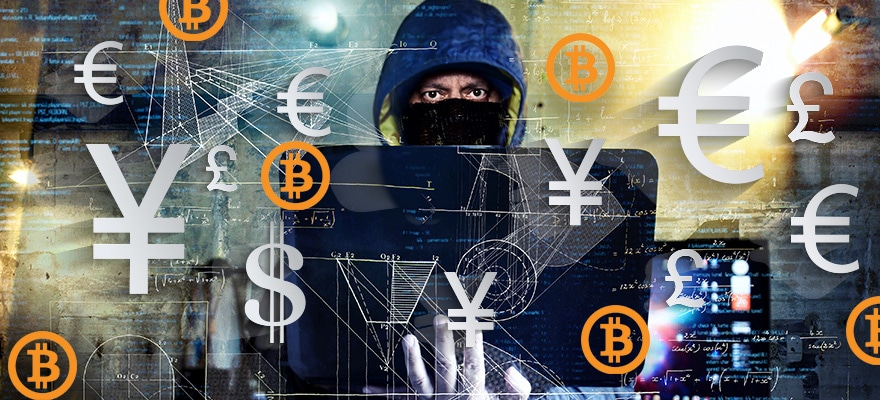The NAVTech Transaction System is now available to the public via open source code. Developers are very confident that NAVcoin is and will be one of the best options for those who would like to ‘come off the grid’ so to speak, providing its users with the option to transact over the blockchain in complete anonymity.
To unlock the Asian market, register now to the .
What makes NAVcoin so unique? What separates NAVcoin from all of these other so-called anonymous cryptocurrencies? To start, the NAVcoin Team strongly believes that financial privacy and freedom is a constitutional right as it states in the 4th Amendment of the U.S. Constitution proposed by Congress in 1789;
“The right of the people to be secure in their persons, houses, papers, and effects, against unreasonable searches and seizures, shall not be violated, and no Warrants shall issue, but upon probable cause, supported by Oath or affirmation, and particularly describing the place to be searched, and the persons or things to be seized.”
NAVcoin developers, even though the blockchain allows users to transact peer-to-peer without the need for a third party, say that it is possible and very easy for an experienced hacker to link sending and receiving addresses with any of the publicly available block explorers. The developers explain:
“A few digital currencies do offer some anonymity for users because due to not having to register your name to your wallet address, some are also able to generate a new wallet address for each transaction and even connect to the blockchain via services which hide or cloak your IP address like Tor.
However, the underlying problem remains, there is always a transaction link from sender to receiver, this exposes an inescapable vector where third parties can attempt to invade financial privacy by making the connection.
There are existing services which attempt to break this transaction chain in various ways, some offer coin mixing services, coin joining services and other more complicated methods of obfuscating sender and receiver details.
The main issue with most of these methods is that they are either; eventually traceable through the public blockchain (if you have enough computing power), or they rely on insecure and unreliable means (like a database) to keep track of who is supposed to end up with the coins, or in some cases some developers use both.”
Method
In response to these issues NAVcoin has created a transaction-anonymizing system which literally separates links between sender and receiver while not relying on any type of database or centralized service.
The following is a brief summary of how it works:
- Instead of sending NAVcoin directly to the receiver, the wallet encrypts the receiver address and sends the transaction to one of the addresses provided by the randomly selected processing server. When this server receives this transaction, it creates a transaction of arbitrary size on the Subchain which it sends to a randomly selected outgoing server.
- This Subchain transaction has the receiver address and the amount of NAVcoins to send, encrypted and attached to it. When the outgoing server receives the Subchain transaction, it decrypts the data, randomizes the transaction amounts and sends NAVcoins to their intended recipient from a preloaded pool of NAVcoins waiting on the outgoing server.
- After the outgoing server has sent out the randomized NAVcoins to the intended recipient, the incoming server will join together any NAVcoins that have been processed and on the next transaction cycle send it to the outgoing server to replenish the pre-loaded pool of NAVcoins for future transactions.
Additionally, developers are looking into upgrading NAVcoin and the Subchain to implement smart contracts. This will enable people to build Anonymous Decentralized Apps (ADapps) on top of the existing dual blockchain system.
In order to consolidate, developers are merging the NAVcoin and Subchain software into one multi-chain wallet. They will then bring the NAVTech processing scripts into the wallet to make the wallet itself capable of being a standalone NAVTech anonymous transaction processor.
Innovation
The development team is also implementing a low-energy NAV PoS staking solution based on the Raspberry-Pi platform. The highly anticipated touch-screen staking unit will offer a more energy efficient way to set up wallets, addresses, view your balances etc.
Furthermore, being introduced is NAVTech Polymorph a fusion of NAVTech’s anonymous transactions and Changelly’s instant exchange enabling users to send any one of 25+ digital currencies anonymously through the dual blockchain powered NAVTech system. Users will even have the ability to specify different input and output currencies to exchange any coin listed at Changelly with the extra security and privacy that the NAVTech system provides.
NAVcoin has also been added to the CoinPayments merchant gateway system allowing merchants to now accept NAVcoin in their physical stores and websites. However, developers are integrating the merchant gateway with NAVTech network to allow for the anonymous purchasing of products.
One other note worth mentioning is that NAVcoin has recently been included at Coinitrage, an online investment firm that was established by a group of experienced digital currency experts specializing in the field of forex and alternative currency trading which allows users to earn consistent interest on client investments.
In conclusion, NAVcoin is worth keeping an eye on and should definitely be considered one of the top picks by those who value 100% privacy and anonymity when it comes to money and finances. Though there are a handful of options to choose from when searching for anonymous digital currencies like Monero, DASH, Zcash and others, just how anonymous are these options and are there any back doors or loopholes that leave users open to compromise?





Be First to Comment